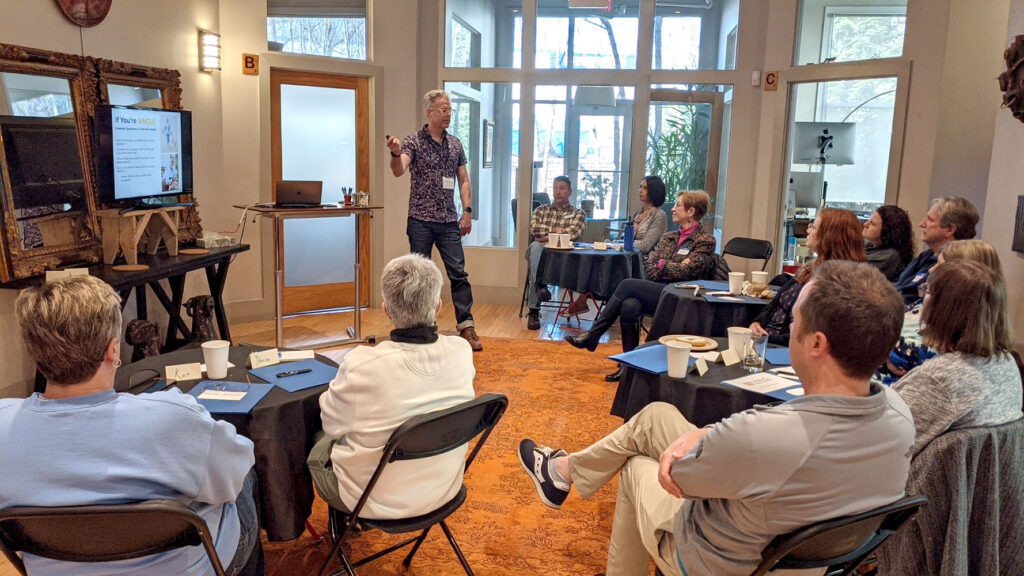Human beings have the gift of thinking critically and expansively, yet most of us become flummoxed when it comes to our own mortality. Knowing death is inevitable may feel depressing, but as estate planning lawyers, we prefer to look at it differently.
We believe taking the time to consider what will happen after you pass away allows you to better enjoy the rest of your life. None of us knows when our number will be up, and you’ll rest easier knowing a plan is in place. We’re pretty sure no one wants to leave their mourning family to work out funeral plans, having no idea where or how you wanted to be laid to rest.
Ace Ratcliff, formerly a mortician and funeral director, agrees with us, and he shared some of his insights with Self. Working in the funeral industry, Ratcliff has repeatedly seen firsthand how the devastating and confusing experience of losing a loved one becomes infinitely more complex when no preparations have been made.
Below, we’ve shared some of Ratcliff’s tips for preparing for your own funeral that we found to be great advice.
Upon Your Eventual Passing, The Loved Ones You Leave Behind Will Have To Rebuild Their Understanding Of The World Without You In It. Taking On Funeral Arrangements During Such An Emotional Time Is Exhausting And Upsetting.
DO IT NOW SO YOUR FAMILY DOESN’T HAVE TO DO IT LATER
Regardless of your age, there is no downside to making end-of-life and funeral preparations now. Upon your eventual passing, the loved ones you leave behind will have to rebuild their understanding of the world without you in it. Taking on funeral arrangements during such an emotional time is exhausting and upsetting—not to mention financially draining.
Even if your mind rebels against it, start considering the simple question of, “what do I want to happen when I die?” The three primary options are cremation, burial, and donation, though each category hosts additional options.
The best choice for you boils down to your personal needs, financial limitations (burial is commonly more expensive than cremation, for instance), and any moral or religious constraints (if you’re catholic, you may not want to be cremated). Next, you can begin thinking about whether or not you want a memorial or funeral service, where it should take place, what it should include, and any other special considerations.
DON’T JUST IDLY PLAN OR DAYDREAM—PUT IT TO PAPER
When you begin formulating concrete guidelines for your funeral, make sure to legally document your wishes as well as inform your loved ones. Remember, your funeral arrangements won’t be set in stone—if your circumstances change or you’ve decided another option may be better for you, you can revisit the documents and update as needed.
While some legal arrangements can be handled online, it’s better to get expert, personal insights from a local attorney, who will better understand the nuances of your state’s laws and be able to maintain your documents throughout your life.
An experienced lawyer can also draw up a Durable Power of Attorney for Health Care, which designates who should make medical decisions for you and control your funeral arrangements. Additionally, they’ll assist with putting other key protections in place, such as a comprehensive estate plan to govern what will happen with your assets and dependents.
We hope you enjoy dreaming up an ideal celebration of your life, whether it’s a New Orleans-style second line, scattering ashes at a place that’s sacred to you, or a more traditional funeral. If you live in the Asheville NC area, we’d love to hear about your plan when it’s ready and help you formalize it. Call us at (828) 258-2888 or fill out our online contact form to get started.
Want to read more about why you should be planning your own funeral? Check out the full article on Self.

















